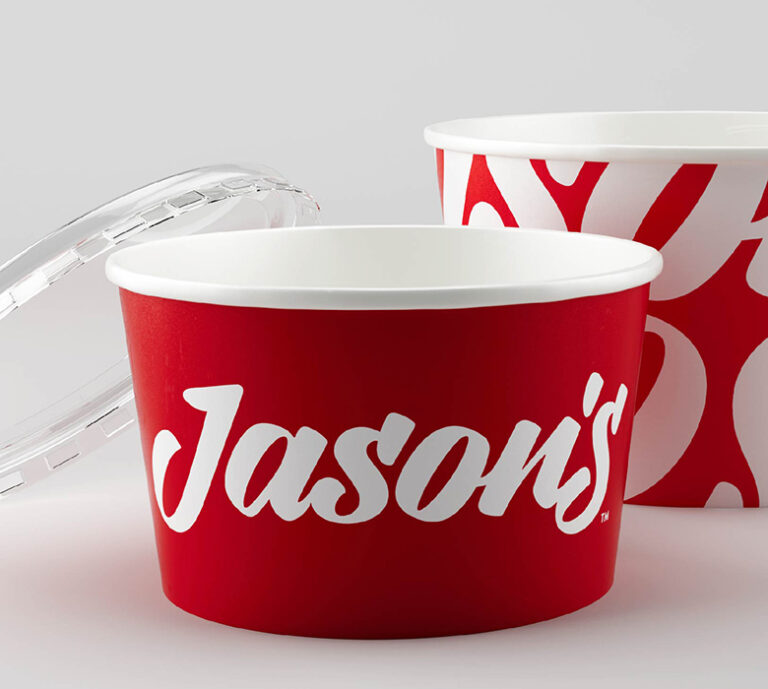×

Our Director of Strategy, Alexa Jewell Schaefer, gives a behind the scenes look at how the new identity system and strategy from Jason’s Deli came to be.

Caitlin Neyer, Strategy Director, shares her perspective on what beauty brands – indie or legacy – must consider to stay relevant and engaging.
Earlier this year, Estée Lauder Companies (ELC) announced it would be increasing ownership of and eventually fully acquiring Deciem, the parent company of the skincare sorcerer The Ordinary. In almost the same breath, ELC broke the news they would be shuttering once-beloved makeup brand Becca Cosmetics. Why buy one brand only to close another? The learnings here go deeper than simply the shifting trend from cosmetics to skincare or the outcome of the COVID-19 pandemic.
Mergers and acquisitions are not a new concept to the beauty industry, and certainly not ELC – a company that has found great financial success since beginning their M&A dealings in the mid-90s. The same can be said for the independent brand being acquired in many cases, looking at you MAC cosmetics. That said, as each party approaches signing on the dotted line, rose-colored glasses can easily tint the transaction to focus on the benefits and glaze over any potential challenges. For the parent company, they opportunistically see a trendy diversified offering, expanded customer base, and, of course, dollar signs. The up-and-comer optimistically sees larger R&D budgets, access to a broader talent pool, and unencumbered growth. Both groups are coming to the table with hopeful expectations, but is the writing on the wall for the final outcome before the ink is even dry? Becca is closing, Bobbi Brown left her namesake, and other brands purchased under a positive pretense have started to feel as dusty as the counters from which they’re sold. To avoid being acquired and then shelved, there are few things indie brands must remain vigilant on post-acquisition – and the same points hold true for legacy brands lest they find themselves lost to the back of the bathroom drawer.
Brands that reach a growth stage – making them appealing to a parent company – have done so by having a clear and compelling reason for their existence: their ‘why.’ Brands that stick around and continue their upward trajectory do so by repeatedly revisiting their ‘why’ and using it as a filter for their decisions, be it in product development, marketing campaigns, or creative execution. When the ‘why’ becomes fuzzy, and the brand owners can no longer articulate it with conviction, the brand becomes lost – internally and externally. When this happens, it is time to recalibrate and recommit to avoid being replaced by a brand that projects the same confidence customers are seeking for themselves.
Arguably more so than any other industry, cosmetics and skincare are incredibly personal decisions and ongoing journeys. Brands must abundantly focus on who they exist to serve and what that group’s needs are. Yes, demographics are necessary, but they can also be superficial. Brands that genuinely know their target customers understand their emotions related to their beauty routines, the number of products they use, how frequently they try something new, and why your brand is even in their consideration set. But knowing all of this is just part of it. Including your customers in creating products and your content will help to bake it relevancy and drive long-term growth.
While the ‘why’ and the ‘who’ may evolve over time, generally, those pieces should be more concrete. The way the brand is brought to life and experienced, however, should feel evergreen, particularly given today’s swipe-for-new expectation for content. There is freshness and flexibility, and then there is superfluous change – don’t create the latter. New creative expression, packaging, products, or marketing should all begin with an insight-led rationale that amplifies the ‘why’ to drive a deeper connection with the ‘who.’ The three points above are all the more important as we come out on the other side of the pandemic. Over the last year, even the most online-adverse consumers have reversed their thinking and have come to see value in technology-enabled, data-driven solutions. As hyper-personalization continues to work its way towards becoming mainstream, the beauty industry should take note of Revea, a new luxury precision skincare brand. Revea has a powerful why – to highlight the broken promises and fallacies of the beauty industry. Revea’s story provides a blueprint worth considering for both new and more established brands – read more about how they arrived at their why and where they are headed.


